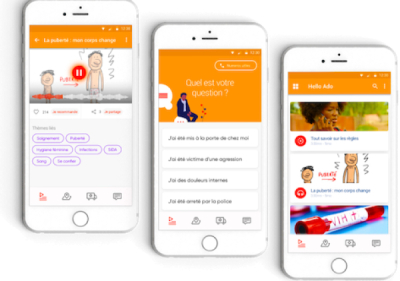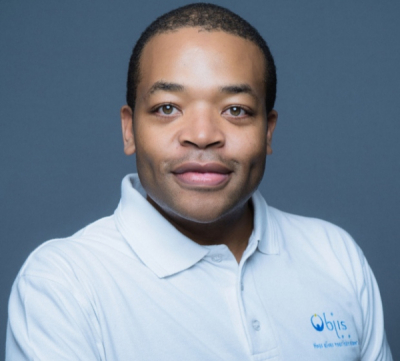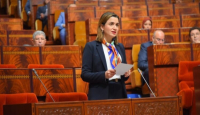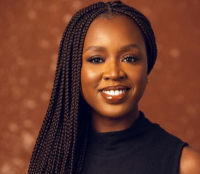Masroofi takes tech-enabled financial inclusion to the next level by reducing the age barrier in Egypt. Indeed, while the minimum age required to get a bank card is 16 years, the solution offers a tailored solution for children.
Masroofi is a digital solution developed by an Egyptian startup. It allows children aged between five and fifteen to get virtual payment cards for various transactions. The solution targets closed communities like school sports clubs to enable children to get used to the various digital and cashless solutions around them.
“As parents, many of us struggle with our children having cash in their hands because they are usually unaware of its worth. They either spend irresponsibly or they lose the cash. This is our seamless solution to parents, with regular notifications to parents of their childrens’ spending habits,” says Masroofi co-founder and CEO, Mostafa Abd Elkhabir.
The solution has a mobile app accessible for iOS and Android devices. Using the app, parents can create accounts to request Masroofi cards for their children (for EGP75 or about US$2.72) and load those cards.
The payment cards issued by Masroofi use NFC technology but, they are neither Visa nor Mastercard-branded. On Playstore, the Android version of its app has been downloaded more than 50 times. Despite that low download count, the founders want to add more features to give an improved financial education to children.
“We are considering creating an age-appropriate simulation that features different types of investment to expose children to investment experiences through their mobile application,” Mostafa Abd Elkhabir explains.
Adoni Conrad Quenum
Côte d'Ivoire aims to become an air hub in West Africa. To achieve this, the government has sought the expertise of California-based start-up Zipline, considered the world leader in instant logistics and drone delivery.
U.S. medical delivery company Zipline will deploy its services in Côte d’Ivoire, in the coming days. Indeed, it recently secured the Certificate of Automated Aircraft Operators (CEAT) from the National Civil Aviation Authority (ANAC) of Côte d'Ivoire.
The CEAT, which is a pre-requisite to fly any automated aircraft in the country, was presented, last Friday, during a ceremony attended by the Ministers of Transport and Health.
According to Diop Boubakar, the Ministry of Transport’s spokesman, air transport is one of the priorities of Côte d'Ivoire’s development plan. To achieve the country’s ambitions in that industry, the Ministry of Transport tasked the ANAC to take the required measures to make the country an air hub in West and Central Africa. ANAC is notably tasked to develop aviation and airport infrastructure. For Diop Boubakar, it has succeeded in doing so with the certification CEAT certificate it granted (the first in Francophone Africa).
In December 2021, Zipline decided to expand into the Ivorian market. At the time, it announced an agreement with the country’s Ministry of Health for the delivery of vaccines, drugs, blood products, and other medical supplies to health facilities all over the country, even in remote and hard-to-reach areas. The partnership is expected to help create many jobs for the local population as Zipline is expected to hire local talent to manage the four distribution centers (to be built and operated by Zipline) where the health products will be stored and distributed to 1,000 health centers across the country. The first distribution center, located in Daloa, should be commissioned in the coming weeks.
Since 2016 when it started its drone delivery operations in Africa (with Rwanda), Zipline has steadily expanded its instant medical logistics business to other African countries, such as Ghana, Nigeria, and Kenya.
Samira Njoya
The serial entrepreneur has launched several tech solutions. He is one of the business leaders who are developing the Zimbabwean tech sector.
Tendai Elvis Mugovi (photo) is a Zimbabwean serial entrepreneur. As the founder and CEO of Mugonat Systems, he develops innovative software for Africans.
Mugonat Systems, founded in 2015, is a software company based in Harare, Zimbabwe. It develops Android and iOS apps as well as SMS, chatbots, and USSD systems for the health, management, and finance sectors, among others.
Some of the software developed by the company include Finmaze HMS (Health management system) which is a health management system for small to large healthcare facilities, and Cashlinq which is a digital banking wallet designed for African financial institutions.
Elvis is also the chief technology officer of fintech company Panamax which helps SMEs access working capital, through crowdfunding.
In December 2022, while explaining the reason he created Panamax, he said: “there is an extremely high cost of borrowing for SMEs due to their perceived risk and lack of a credit record and a high lag time between the time of need and time of capital provisioning. This affects SMEs’ agility in responding to immediate market needs."
The serial entrepreneur is also the director of healthtech platform DocOnline Africa, edtech startup Smart360°, and agritech eMudhumeni. Besides his entrepreneurial career, he has years of professional experience in both the startup ecosystem and the tech industry.
In 2015, he joined the Zimbabwean company Expert Decision Systems (XDS) as a software developer. From March 2016 to June 2017, he worked for the innovation hub and accelerator rubiem Group as the manager. The following year, he was hired by C2 Media Pty Ltd as a Full Stack software engineer. Then, in 2019, he became the CEO of rubiem Innovations, where he worked till May 2021.
Melchior Koba
The coronavirus pandemic accelerated the digitalization of several public services in Zimbabwe, including the digital system. In the country, numerous reforms are ongoing to improve the judicial system and dematerialize the process.
Zimbabwe will launch the second phase of the Integrated Electronic Case Management System (IECMS) next February 1. The web-based system will manage cases and automate and track all aspects of the case life cycle, from initial filing to disposition and appeal.
"On February 1, we are going live at the Labour Court and Administrative Court. [...] We call upon all current and potential court users to register with the system," said Daniel Nemukuyu, the judicial service commission's head of corporate services.
The judicial service commission launched the first phase of the IECMS on February 7, 2022, with the aim of reducing case backlogs, preventing the loss and physical damage of case documents, improving the accessibility of information, and modernizing industry operations.
Under IECMS, several cases have been referred virtually and the Commercial, Supreme and Constitutional Courts are already planning to hold virtual trials. The second phase will integrate the system into the platforms of institutions like police prisons and correctional services, the prosecutor's office, the national prosecuting authority, the legal aid directorate, and the Zimbabwe Anti-Corruption Court.
"We are running training sessions for court staff and other court users on how to use the new system ahead of the official implementation of the second phase on February 1," added Daniel Nemukuyu.
It is worth noting that the project lines up with the government and the judicial services commission's policy, which aims to bring the justice system closer to the population in accordance with the National Development Strategy 1 (NDS1).
Samira Njoya
The solution was developed to reduce STIs and STDs among young Africans. It leverages digital tools to raise awareness about issues related to sexual health and rights.
Hello Ado is a digital solution launched, in November 2020, by the Senegalese NGO African Network of Health Education (NGO RAES), UNESCO Dakar, and the National Alliance against AIDS (ANCS). It aims to educate Central and West African youth on sexual and reproductive health and rights and direct them to the health, protection, and support services they may need.
Its Android app has been downloaded more than 10,000 times on Playstore already. It offers audio, video, and written content that answers most of the questions young people are asking themselves nowadays. Once they download the app, they can create their accounts, which allows them to ask questions in a forum when they can't find answers to their concerns.
Apart from the contents available, the app helps locate the nearest health centers where users can discuss sexual health and reproductive issues. Its forum moderators always try to keep everyone focused so that the discussions can always be educational.
Let's note that before launching, the solution underwent a beta testing phase in Mali, Senegal, Côte d'Ivoire, and the Democratic Republic of Congo. Over 400 young people took part in that phase to improve its functioning before deployment. Additional tests were carried out in Gabon and Cameroon in the first quarter of 2021. Nowadays, Hello Ado is accessible in every Francophone African country.
Adoni Conrad Quenum
After six years of professional experience, he ventured into entrepreneurship. Right from France where he spent almost all of his life, the Cameroonian-born entrepreneur trains young Africans in digital professions and supports them in their job hunt or their self-employment bids.
Douglas Mbiandou (photo) is a Cameroonian-born entrepreneur who has been living in France since he was seven. Right from his base in France, he founded the non-profit association 10 000 CODEURS (10000 coders) whose goal is to train ten thousand coders by 2025.
In 2017, Douglas revealed that the Lyon-based non-profit institution was launched, in 2015, when he carried out a consulting mission for the Congolese government. “The ambition is to train 10,000 mobile and web developers between 2015 and 2025,” he stressed.
His institution operates in Francophone Africa and in France. It facilitates the professional integration of millions of people by retraining and giving them the skills needed for digital professions and entrepreneurship.
10 000 CODEURS provides its young members with digital education. Its training platform offers more than 800 videos on digital usage, technologies, and jobs, among others. It also has more than 450 webinars.
Before 10000 codeurs, in 2005, in France, he founded OBJIS, a firm that trains and supports young Africans in software design. With that firm, which equips startup founders with operational skills, he has already trained over 3,000 programmers. Since 2021, he is the president of Aurafrica a network that facilitates relations between entrepreneurs operating in Auvergne-Rhône-Alpes and those residing in Africa. Before his entrepreneurial journey, he spent five years (2001-2007) working as an application engineer for the IT firm Capgemini.
Melchior Koba
In Africa, internet access is one of the major challenges that can prevent effective digital transformation. In that context, the Morrocan government wants to ensure that every region has access to that utility, even the most remote areas.
Morocco will connect most of its national territory to the internet by the end of 2023, Digital Minister Ghita Mezzour (photo) recently revealed.
Last Monday, while answering the House of Representatives' oral questions on internet connection in rural areas, the government official explained that 9,225 out of 10,740 zones have been connected to the internet during the first phase of the 2018-2023 national plan for the development of broadband and ultra-broadband connection. The remaining 1515 will be connected by the end of 2023, she added revealing that the Ministry of Digital Transformation was already preparing the second phase of the project. The second phase will connect 1700 new zones, with a particular focus on poorly-covered regions.
In recent years, Morocco has implemented numerous actions to boost internet access. According to Cable.co.uk’s “Worldwide broadband speed league 2022,” the country has the ninth fastest internet connection in Africa with mean download speeds of 13.03 megabits per second (Mbps).
During her oral session on December 26, Minister Ghita Mezzour also informed that the four technoparks operating in the country currently support 450 startups whose cumulative turnover is US$86 million. According to the official, 25% of the supported startups export their digital products.
Samira Njoya
In recent years, Niger has taken several actions to improve its internet coverage. The government also plans to create a legal framework for effective digital transformation.
Niger has adopted a new National Cybercrime Strategy to strengthen the country's digital transformation, a statement released after the December 27, 2022, Ministerial council informs.
According to the statement, the initiative aims at “ensuring a sustainable and effective digital transformation in Niger.” It also aims at "consolidating both investors and the public’s confidence in information and communication technologies.” The strategy will enter its implementation phase in 2023 and run for four years.
It will focus on four axes. The first is the enhancement of legislative, regulatory and institutional frameworks to protect users. The second is the protection and securitization of critical national infrastructure by building the capacity of operational institutions and boosting their human resources. The third axis is the development of mechanisms to prevent, detect and repress cyberattacks to improve security and build users’ confidence in ICT tools. The last axis is the promotion of public-private and public-public cybersecurity partnership by strengthening national, regional and international cooperation.
The program comes one year after the Internet development study launched by the government in October 2021. The objective was to allow Nigerien authorities to concretely understand the ecosystem and the national laws governing the use of the internet, assess the digital ecosystem and identify the gaps to be filled to make the Internet a tool for development.
Since 2018, the World Bank is committed to helping Niger develop Internet access, both in urban and rural areas, and to make connectivity a tool for socio-economic growth.
Jean-Marc Gogbeu
She is an experienced business leader and successful entrepreneur. Her impact on the African tech ecosystem earned her an appointment as the head of the new accelerator program launched by Techstars, one of the world's largest investors.
Oyin Solebo (photo) is a Nigerian entrepreneur and investment manager. In October 2022, the economics graduate and MBA holder was appointed managing director of ARM Labs Lagos Techstars Accelerator, an acceleration program launched by Techstars and Lagos-based innovation hub ARM Labs a few months earlier.
The acceleration program she now heads aims to support fintech and proptech startups whose products are destined for African consumers. Its 3-month maiden cohort is scheduled to start in January 2023.
“Whilst talent is equally distributed, the opportunity is not. Nowhere is this more obvious than on the African continent. The ARM Labs Lagos Techstars Accelerator furthers Techstars’ mission to support entrepreneurs everywhere and give startups the capital and opportunities they need to succeed, regardless of their location or background - and I’m honoured to be leading it,” Oyin Solebo said after her appointment as the head of the new acceleration program.
Before that appointment, she co-founded (in 2014 ) Movemeback, a Google-backed technology platform that connects a global community of leaders, influencers, talent, and organizations to unique, exclusive, and exciting high-potential opportunities in Africa.
In 2013, she co-founded Agonyapp, an anonymous relationship advice app. However, her professional career began in 2004 at Goldman Sachs where she was an investment associate. In 2010, she joined the management consulting firm Roland Berger as a strategy consultant. From 2011 to 2020, she worked as the managing director of European Family Offices.
In 2021,the entrepreneur participated in the Google for Startups black founder immersion program and this year, she took part in the London & Partners' Business Growth Programme.
Melchior Koba
In Africa, several cities are faced with rising and persistent insecurity. In South Africa, where the problem is ever-present, a startup has decided to leverage digital tools to address it.
Namola is a digital solution developed by a South African start-up. It allows users to protect themselves and their families. When a Namola user requests assistance for self or a relative, the startup calls “immediately [...] to confirm details and then dispatch help from Namola Communities, Emergency Services or Private Response.”
Its mobile app -available for Android, iOS, and Huawei devices- has a “panic button” that can be pressed to request assistance. The app also sends notifications to members when their relatives safely leave or arrive whenever they are traveling.
The startup uses GPS technologies to locate users or their relatives when there is an issue. It also uses the technologies for advanced monitoring to ensure safety when there are threats or any other situation that may endanger life. With its national network, it can respond wherever the user or relative needing assistance is.
Since its launch, the Android version of the application has been downloaded more than 100,000 times, according to Play Store. Apart from its free plan, it has a paying offer (Namola Plus that cost ZAR59 or US$3.47 monthly) that entitles to the free services and a range of private services for fast responses.
Adoni Conrad Quenum
More...
With demand for broadband connectivity accelerating across Africa, South African authorities want to provide more capacity to enable Internet service providers to meet the needs.
In the recently published draft amendment to the current radio frequency regulations, South Africa’s ICASA proposed additional radio spectrum for the provision of high-speed wireless internet.
ICASA explains that its decision to update the regulations is justified "by the need to keep the provisions of the regulations current with the existing and emerging technologies aimed at revolutionizing the electronic communications sector." It, therefore, proposes the allocation of the lower part of the 6 GHz band (5925 MHz to 6425 MHz), as well as the 122 GHz to 246 GHz band for non-specific short-range applications.
The ICASA's decision follows pressure from South Africa's Internet service providers in recent months to free up more spectrum in the 6 GHz band. According to the Wireless Access Providers Association (WAPA), this band is expected to enable the deployment of Wi-Fi 6E, the latest Wi-Fi technology, fetching up to US$57.76 billion to the rainbow nation over the next ten years.
According to ICASA, the release of additional spectrum in the 6 GHz band "will provide a much-needed boost for Wi-Fi availability and uptake, and is expected to enable faster data communications between devices connected to wireless infrastructure, reduce latency, and improve efficiency and data throughput."
Isaac K. Kassouwi
Zimbabwe's economy is largely dependent on the exploitation of natural resources. With the fourth industrial revolution underway, Harare wants to make digital technologies the foundation of the country's development by 2030.
Zimbabwe approved, Tuesday (Dec.20), the national 2023-2030 broadband program. The program aims to accelerate broadband penetration in the country and reduce the cost of access to 2% of the average monthly income per capita from the current 10.1%.
The program plans several key projects that will be funded by the government and private investors. In addition, a broadband committee will be established to provide a periodic assessment of progress, facilitate coordination and collaboration, and make suggestions for adjustment.
The broadband program is part of the Emmerson Mnangagwa government's strategic vision to make Zimbabwe a high-income economy by 2030. The government wants to drive access and adoption of broadband services across government agencies, businesses, households, and individuals to transform Zimbabwe's growth trajectory from one driven largely by natural resource exploitation to one driven by innovation.
For Minister of Information Monica Mutsvangwa, “the importance of broadband and its transformative benefits include the following: enhancement of global competitiveness, job creation, increased productivity, improved national security, and enhancement of performance in education, agriculture, health, and governance. [...] All of these are prerequisites for achieving the Sustainable Development Goals.”
Isaac K. Kassouwi
In recent years, voices against sexual assaults have grown louder worldwide. In that context, to give voice to victims and eventually prevent such acts, Moroccan authorities have set up a digital solution.
Kolonamaak is a support platform developed by Moroccan authorities for women and girls in vulnerable situations. It allows users to "report any abuse or violence suffered by women and girls, and to direct them to the appropriate authorities."
The solution was launched on January 29, 2020, and was set up on the instructions of Her Royal Highness Princess Lalla Meryem, President of the National Union of Moroccan Women (UNFM).
Its Android and iOS apps help localize women in case of emergency. They just have to dial 8350 to reach support and get directions on the competent authorities to reach out to.
The solution also helps them get coaching after a major trauma. Among other things, it offers various tips on "employment opportunities, training, business creation or income-generating projects at the local and regional levels.”
Since its launch, the Android version has already been downloaded more than a thousand times on PlayStore.
Adoni Conrad Quenum
Data security has become a concern in almost every industry with the development of digital tools. In Ghana, a startup has partially tackled the issue with a solution that allows microfinance institutions to build digital trust by letting their customers “know that their money and data are safe.”
Fluid is a digital solution developed by Ghanaian startup Fluid Finance Technologies. It allows microfinance institutions’ field agents to collect data faster and more efficiently.
“With Fluid’s software, Field Agents work faster and create trust with customers. Payment collections and account creation are now fully digital and video-traceable. This allows microfinance customers to know that their money and data are safe with you,” the startup indicates on its website.
Microfinance agents are thus equipped with the software to better perform their fieldwork. To convince potential customers to subscribe to the services offered, the fintech has created educational videos and various educational content to “upskill” both customers and microfinances’ field agents. Also, the solution is designed to be used completely offline to allow field agents to reach remote communities and provide financial services.
In October 2022, Fluid was selected, along with five other Ghanaian startups, to participate in the first cohort of the MEST Express accelerator focused on sustainability.
Adoni Conrad Quenum














